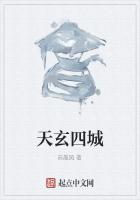Of Helen, from Homer, we know no more. Grace, penitence in exile, peace at home, these are the portion of her who set East and West at war and ruined the city of Priam of the ashen spear. As in the strange legend preserved by Servius, the commentator on Virgil, who tells us that Helen wore a red "star-stone," whence fell gouts of blood that vanished ere they touched her swan's neck; so all the blood shed for her sake leaves Helen stainless. Of Homer's Helen we know no more.
The later Greek fancy, playing about this form of beauty, wove a myriad of new fancies, or disinterred from legend old beliefs untouched by Homer. Helen was the daughter of the Swan--that is, as was later explained, of Zeus in the shape of a swan. Her loveliness, even in childhood, plunged her in many adventures.
Theseus carried her off; her brothers rescued her. All the princes of Achaea competed for her hand, having first taken an oath to avenge whomsoever she might choose for her husband. The choice fell on the correct and honourable, but rather inconspicuous, Menelaus, and they dwelt in Sparta, beside the Eurotas, "in a hollow of the rifted hills." Then, from across the sea, came the beautiful and fatal Paris, son of Priam, King of Troy. As a child, Paris had been exposed on the mountains, because his mother dreamed that she brought forth a firebrand. He was rescued and fostered by a shepherd; he tended the flocks; he loved the daughter of a river god, OEnone. Then came the naked Goddesses, to seek at the hand of the most beautiful of mortals the prize of beauty. Aphrodite won the golden apple from the queen of heaven, Hera, and from the Goddess of war and wisdom, Athena, bribing the judge by the promise of the fairest wife in the world. No incident is more frequently celebrated in poetry and art, to which it lends such gracious opportunities. Paris was later recognised as of the royal blood of Troy. He came to Lacedaemon on an embassy, he saw Helen, and destiny had its way.
Concerning the details in this most ancient love-story, we learn nothing from Homer, who merely makes Paris remind Helen of their bridal night in the isle of Cranae. But from Homer we learn that Paris carried off not only the wife of Menelaus, but many of his treasures. To the poet of the "Iliad," the psychology of the wooing would have seemed a ****** matter. Like the later vase-painters, he would have shown us Paris beside Helen, Aphrodite standing near, accompanied by the figure of Peitho--Persuasion.
Homer always escapes our psychological problems by throwing the weight of our deeds and misdeeds on a God or a Goddess, or on destiny. To have fled from her lord and her one child, Hermione, was not in keeping with the character of Helen as Homer draws it.
Her repentance is almost Christian in its expression, and repentance indicates a consciousness of sin and of shame, which Helen frequently professes. Thus she, at least, does not, like Homer, in his chivalrous way, throw all the blame on the Immortals and on destiny. The cheerful acquiescence of Helen in destiny makes part of the comic element in La Belle Helene, but the mirth only arises out of the incongruity between Parisian ideas and those of ancient Greece.
Helen is freely and bitterly blamed in the "Odyssey" by Penelope, chiefly because of the ruinous consequences which followed her flight. Still, there is one passage, when Penelope prudently hesitates about recognising her returned lord, which makes it just possible that a legend chronicled by Eustathius was known to Homer,--namely, the tale already mentioned, that Paris beguiled her in the shape of Menelaus. The incident is very old, as in the story of Zeus and Amphitryon, and might be used whenever a lady's character needed to be saved. But this anecdote, on the whole, is inconsistent with the repentance of Helen, and is not in Homer's manner.
The early lyric poet, Stesichorus, is said to have written harshly against Helen. She punished him by blindness, and he indited a palinode, explaining that it was not she who went to Troy, but a woman fashioned in her likeness, by Zeus, out of mist and light.
The real Helen remained safely and with honour in Egypt. Euripides has made this idea, which was calculated to please him, the groundwork of his "Helena," but it never had a strong hold on the Greek imagination. Modern fancy is pleased by the picture of the cloud-bride in Troy, Greeks and Trojans dying for a phantasm.
"Shadows we are, and shadows we pursue."
Concerning the later feats, and the death of Paris, Homer says very little. He slew Achilles by an arrow-shot in the Scaean gate, and prophecy was fulfilled. He himself fell by another shaft, perhaps the poisoned shaft of Philoctetes. In the fourth or fifth century of our era a late poet, Quintus Smyrnaeus, described Paris's journey, in quest of a healing spell, to the forsaken OEnone, and her refusal to aid him; her death on his funeral pyre. Quintus is a poet of extraordinary merit for his age, and scarcely deserves the reproach of laziness affixed on him by Lord Tennyson.
On the whole, Homer seems to have a kind of half-contemptuous liking for the beautiful Paris. Later art represents him as a bowman of girlish charms, wearing a Phrygian cap. There is a late legend that he had a son, Corythus, by OEnone, and that he killed the lad in a moment of jealousy, finding him with Helen and failing to recognise him. On the death of Paris, perhaps by virtue of the custom of the Levirate, Helen became the wife of his brother, Deiphobus.















